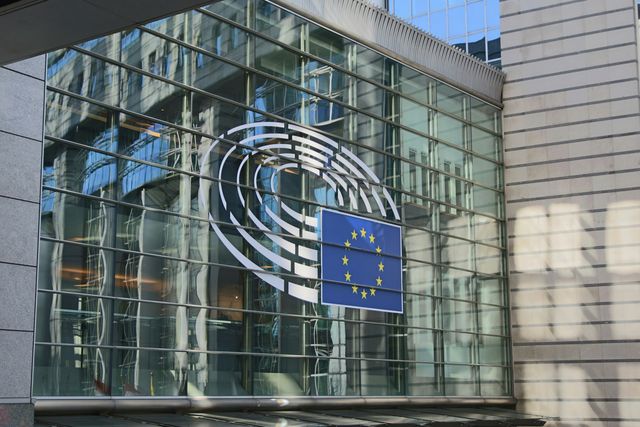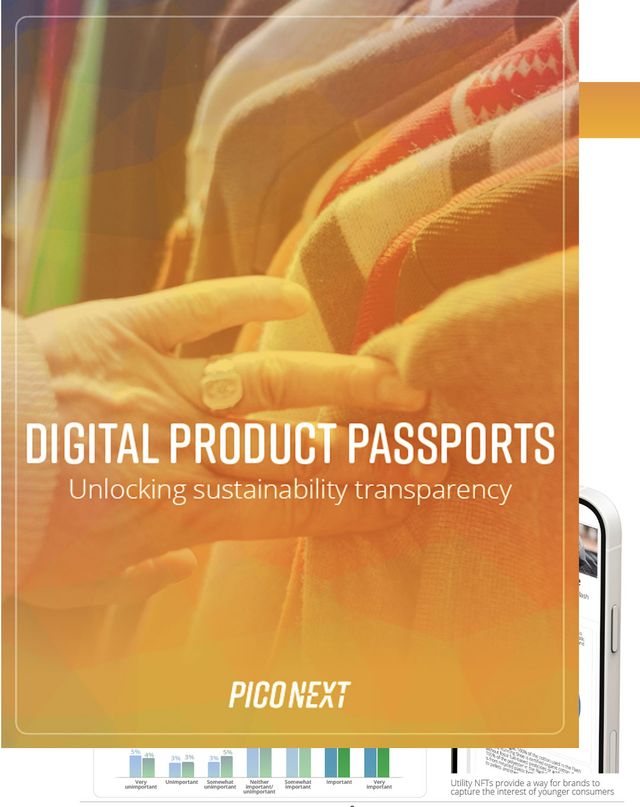On 22 May 2024, the European Commission provided an update on the Ecodesign for Sustainable Product Regulation (ESPR), the legislation that outlines the requirements for companies to produce Digital Product Passports (DPPs). As envisioned by the EU, DPPs will communicate important information about product sustainability in order to promote a more circular economy.
In the update webinar, the EU outlined several important concepts related to DPPs, including the following:
Virtually all physical products sold in the EU will require a DPP
Expanding on the previous Ecodesign Directive, which regulated energy-related products, the ESPR will require companies to provide DPPs for virtually all physical products placed for sale in the EU, with some exceptions. Products not requiring DPPs include: Food and feed, Medicinal products, Veterinary medicinal products, Living plants, Animal and microorganisms, Products of human origin, Products of plants and animals relating to their reproduction, and Vehicles (motor vehicles, motorcycles, agricultural vehicles like tractors). However, E-bikes and E-scooters do require DPPs.
ESPR provides a framework, and DPP details will come in follow-up legislation
The overall ESPR legislation is designed to provide a framework for overall sustainability requirements in the EU, but many of the details will come in follow-up rules (called “delegated acts”). These delegated acts will cover specific product categories, and will outline the specific data points a DPP will need to include per product category.
DPPs will be largely decentralised
Companies will be responsible for placing their own product information into a DPP, either on their own or by using a Digital Product Passport solution like PicoNext. There will be no central tool or template provided by the EU to create a DPP. The DPPs will be associated with a unique product identifier, and will be accessed through a data carrier (like scanning a QR code). Once companies have a DPP, they will need to register it on a central registry maintained by the EU.
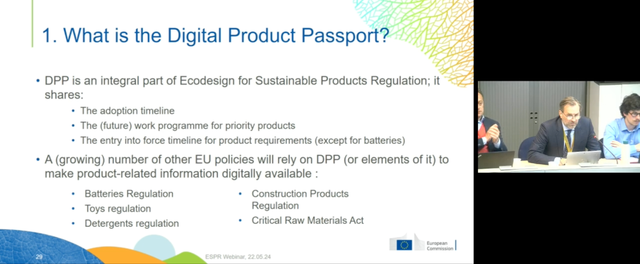
DPPs will need to host public and private data
Some data in a Digital Product Passport is public-facing — like instructions on how to recycle or dispose of a product. Other information can be private or restricted, such as product schematics, or confidential sourcing information. DPPs need to support both types of data, and permit access to private data to only parties with a need-to-know, such as distributors or market surveillance authorities.
Read more about how PicoNext supports public and private DPP data.
Companies need to make a backup of their DPPs
To solve the question of information persistence ��– i.e. making sure the DPP is available for at least the expected lifetime of a product, and guarding against company insolvency – the EU will require companies to place a backup copy of their DPP with a certified third-party provider. Depending on the specific EU rules, blockchains could provide a solution to information persistence because data is stored on globally available, persistent public ledgers.
Non-compliance penalties include fines
The ESPR provides provisions for penalties on non-compliant companies by EU member states, including the possibility of fines for companies that don’t create DPPs in compliance with the EU standards.
Ensuring accurate data is presented in a DPP
The EU envisions that national market surveillance authorities will be charged with ensuring that the data presented in a DPP is accurate. This may include automated means to ensure completeness of DPP information.
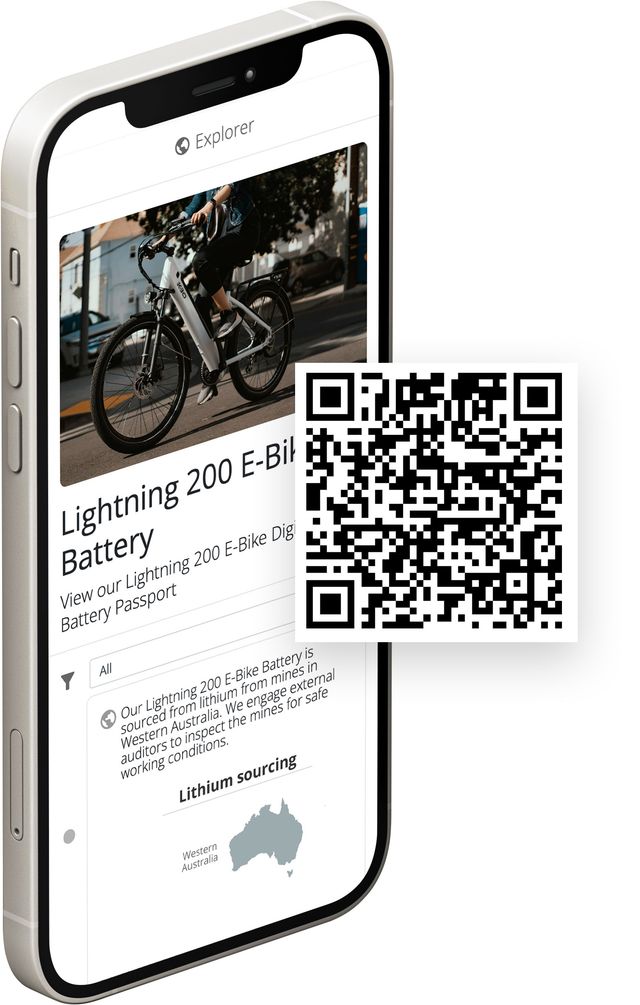
Requirements for suppliers from outside the EU and third-party marketplaces
If companies from other countries (outside of the EU) wish to place a product for sale on the EU market, they will need to ensure that they provide a DPP in accordance with the law. Third-party marketplaces need to provide access to the DPP to potential EU-based purchasers.
Upstream suppliers and DPP information
The responsibility lies with the company placing the product on the EU market to communicate with their upstream suppliers to ensure they have accurate information to include in their DPP.
Creating DPPs for component parts
In cases where component parts are addressed by a specific piece of legislation (a delegated act), the component part will need to have a DPP.
Preparation timeline for DPP
The delegated acts will allow for companies to prepare their DPP implementations. From the time a delegated act comes into force, the EU expects that companies will have a minimum period of 12 months to assess their processes and realign their systems to comply with DPP requirements.
Preparing for DPP implementation
The European Commission suggests that companies prepare for DPP implementation. To comply with the requirements, they suggest that:
- A product passport exists, and it is in compliance with essential requirements established in articles 9 and 10 [of the ESPR] – exceptions are possible
- The product passport is complete, meaning it includes all the mandatory information listed in the corresponding product group-specific Delegated Act
- The information included in the passport is authentic, reliable, and verified in accordance with requirements established in the corresponding product group-specific Delegated Act
- A back-up copy of the DPP is stored by a certified third-party product passport service provider
- A copy of the data carrier or unique product identifier is made available to dealers and online marketplaces selling the corresponding product
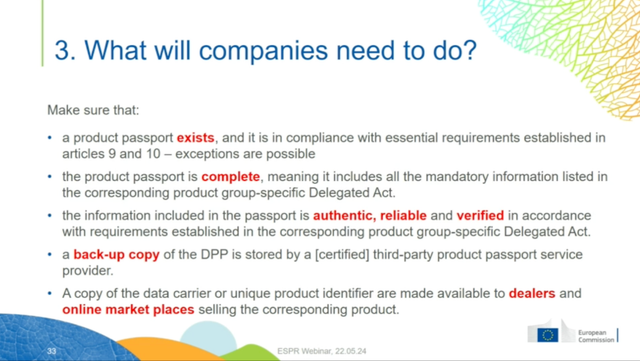
For more information
- View the complete EU ESPR update webinar
- View our Digital Product Passport guide, which analyses the ESPR legislation
- See a demo of PicoNext DPP Solutions
